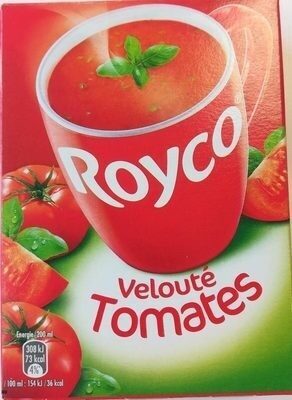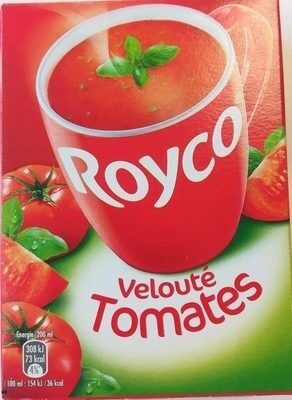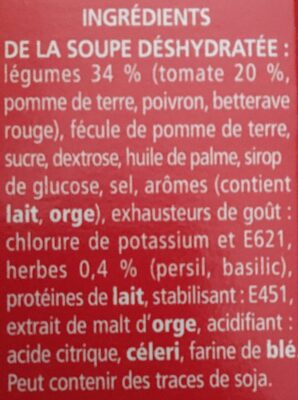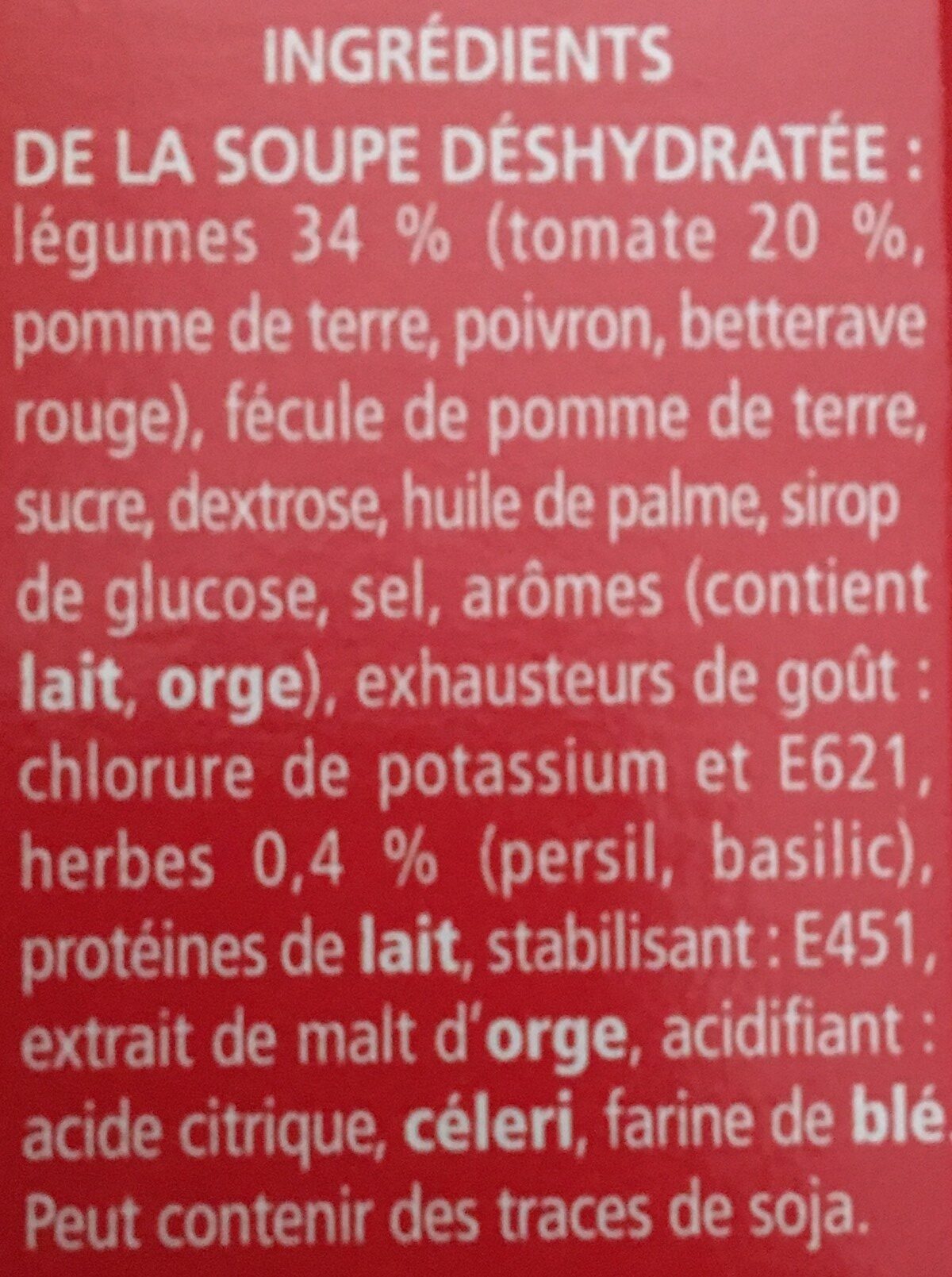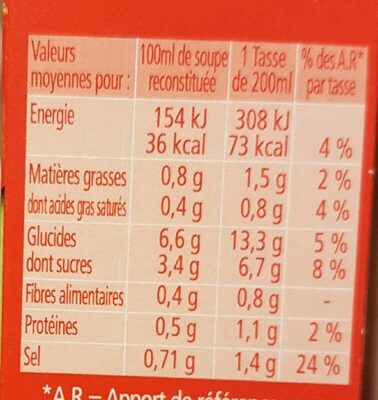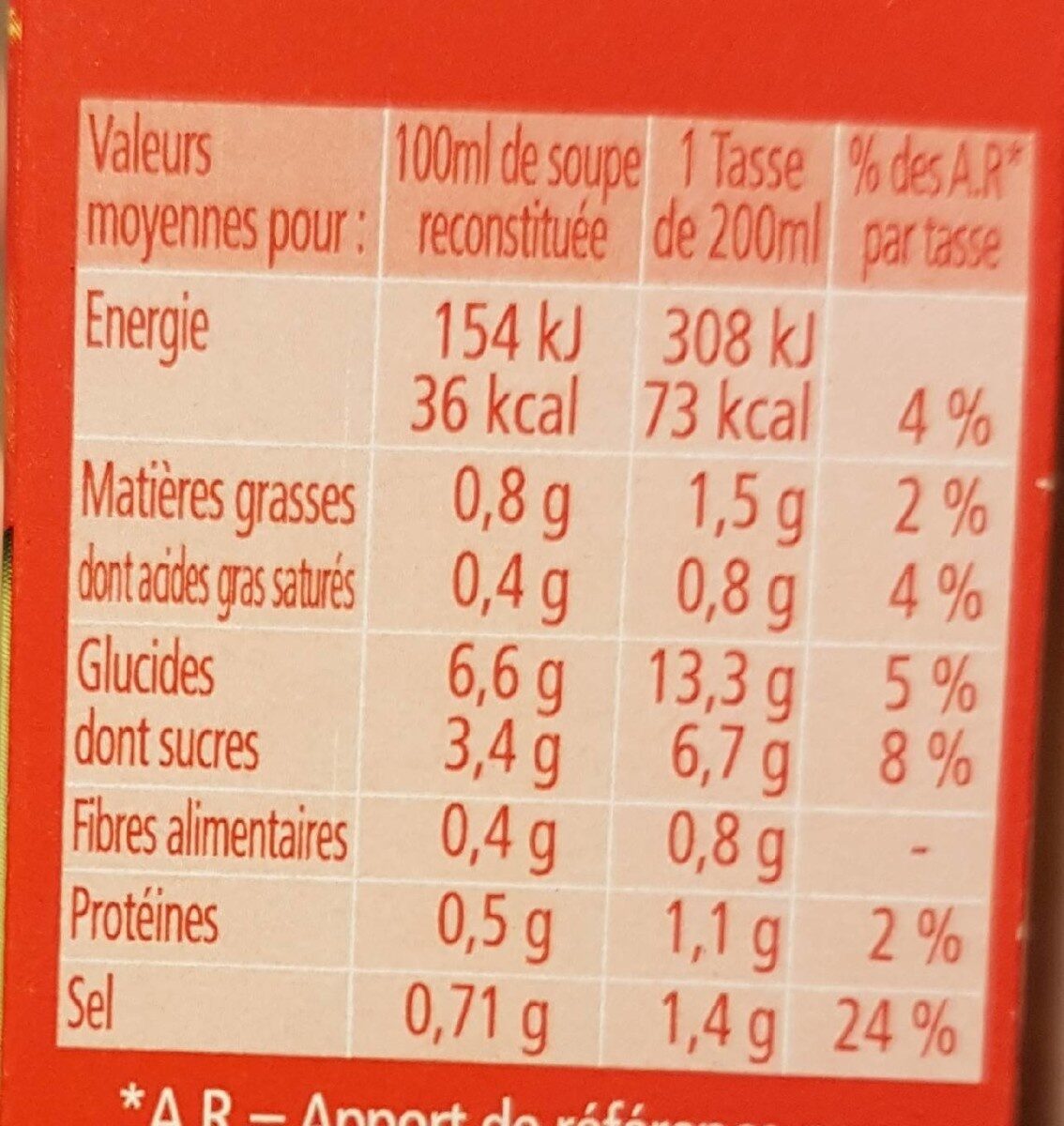Velouté Tomates - Royco - 72g
This product page is not complete. You can help to complete it by editing it and adding more data from the photos we have, or by taking more photos using the app for Android or iPhone/iPad. Thank you!
×
Barcode: 3036812010446 (EAN / EAN-13)
Quantity: 72g
Brands: Royco
Categories: Plant-based foods and beverages, Plant-based foods, Fruits and vegetables based foods, Vegetables based foods, Meals, Dried products, Dried products to be rehydrated, Soups, Tomatoes and their products, Cream soups, Dried meals, Vegetable soups, Cream of vegetable soups, Dehydrated soups, Cream of tomato soups
Labels, certifications, awards: No preservatives, No colorings
Stores: Monoprix, Magasins U
Countries where sold: France, Switzerland
Matching with your preferences
Environment
Carbon footprint
Packaging
Transportation
Threatened species
Report a problem
Data sources
Product added on by openfoodfacts-contributors
Last edit of product page on by packbot.
Product page also edited by arcenciel58, athanasius, autorotate-bot, coldcat, date-limite-app, guillaume92, kiliweb, magasins-u, pth, quechoisir, roboto-app, shera, torredibabele, yuka.B50eE_CuR8scJMvs1JIl8TicLuDNJu5TMi4Log, yuka.R3BvY0FvTThwTm9TaFBFWndnejNxdUFvekxPakFYMnZMdTg0SVE9PQ, yuka.VnFJdUM3NWZ1NlVMdHZZNTBDSDgwTnRyM1lPM1czRzVCdTRmSWc9PQ, yuka.ZTYwTkg3VUJyTjhPeHZRUW9nM1p4czUxK1p5RVltT2xPL1FlSWc9PQ, yuka.sY2b0xO6T85zoF3NwEKvlkVcQub4njX8KwzuxHCi2IyrAJjnW_pe6JjkEao.
